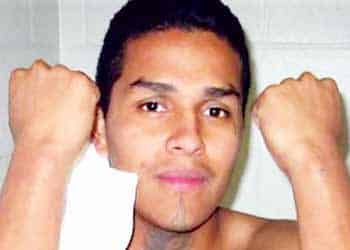A court in El Salvador has temporarily blocked the extradition of a top MS13 gang leader to the United States to face terrorism-related charges, dealing a serious body blow to relations between the two nations.
At the end of September, El Salvador’s Supreme Court ruled that Armando Eliú Melgar Díaz, alias “Blue,” would not be extradited to the United States at this time and would instead be prosecuted for illicit association, homicide, and other charges at home first, Revista Factum reported.
US authorities requested Melgar Díaz’s extradition in 2020. However, the two-year window for Salvadoran authorities to rule on that request ended on September 30, prompting officials to make a decision. It remains to be seen if Melgar Díaz will be extradited at a later date following the completion of his proceedings in El Salvador.
As a top leader of the Mara Salvatrucha (MS13), Melgar Díaz became the first gang member US prosecutors had ever charged with terrorism, albeit controversially. In the indictment unsealed in July 2020, authorities accused him of participating in a racketeering conspiracy and providing support to terrorists, narco-terrorism, and conspiracy to finance terrorism, among other crimes.
The decision to hold off on extraditing Melgar Díaz comes at the height of President Nayib Bukele’s “war on gangs.” Since a state of exception, enacted in late March, suspended certain constitutional rights to facilitate arrests, government officials have detained more than 50,000 suspected gang members. Meanwhile, rights groups have denounced hundreds of arbitrary detentions, prison deaths, and other abuses in the months that followed.
InSight Crime Analysis
Melgar Díaz is not just any MS13 gang leader, and US officials will almost certainly view the blocking of his extradition as President Bukele’s way of thumbing his nose at prosecutors there.
To be sure, then-Attorney General Bill Barr announced the historic charges against Melgar Díaz from the White House alongside former President Donald Trump, as well as John Durham, the director of Joint Task Force Vulcan, whose stated objective was “destroying” the MS13. Never before had so many high-ranking officials deliberately targeted an MS13 leader in such a publicized manner.
In many ways, Melgar Díaz and his contentious classification as a “terrorist” by US officials represented the culmination of President Trump’s use of the MS13 as a boogeyman to rile up political support and increase backing for the anti-immigrant policies he pushed.
Since then, the US government went on to indict 14 other top MS13 leaders for terrorism-related crimes in January 2021. In June of this year, US embassy officials urged Salvadoran authorities to extradite Melgar Díaz and the other leaders wanted for extradition.
SEE ALSO: US Indictment of MS13 Leader More (Political) Smoke Than (Terrorist) Fire
In an email to InSight Crime, a spokesperson said the US Justice Department would not comment on the extradition.
The fact that Melgar Díaz’s extradition has been put on hold — in the middle of a so-called “war on gangs” — speaks volumes about the selective nature of President Bukele’s crackdown. While some top MS13 leaders have allegedly been personally escorted out of prison and the country by government officials, countless others accused of gang ties have been rounded up without due process.
Up until this point, President Bukele has only given in to extraditing certain low-level gang members, falling well short of satisfying demands for MS13 leaders to be tried in the United States. On the other hand, the gang members his administration allegedly negotiated with to secure a reduction in violence — some of whom are wanted for US extradition — have not been targeted in the same way.

